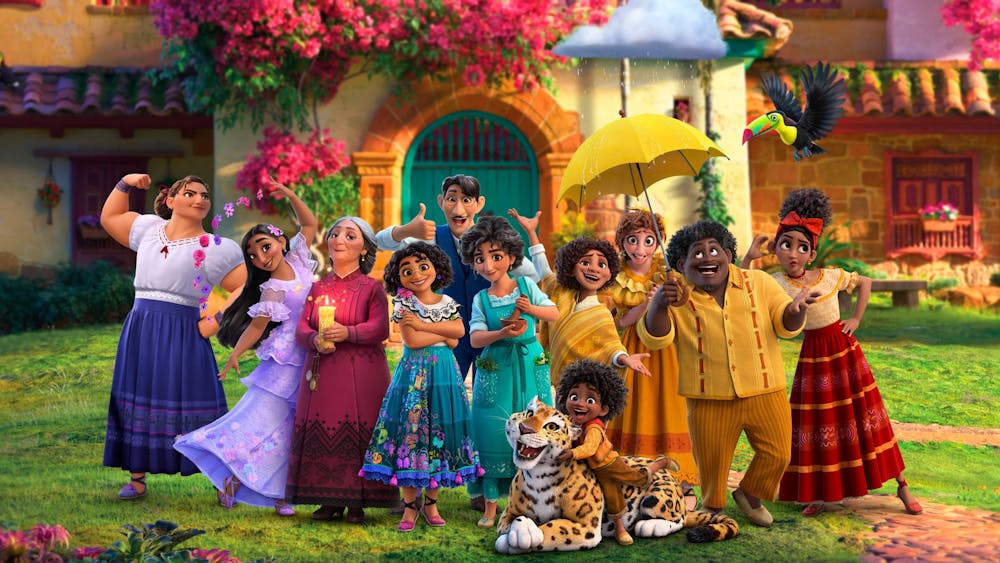“But you don’t look Latina,” is a phrase IU senior Emillianna Puello knows all too well.
Puello, who is Black and Dominican, identifies as Afro-Latina. Puello and Afro-Latinos everywhere have struggled with passive aggressive comments that discount their culture.
According to a Pew Research study, Afro-Latinos make up 5% of the Black population in America. Despite this, they had little to no media representation until the Disney movie “Encanto” was released on Nov. 24, 2021.
“Encanto” is necessary representation for Afro-Latinos and everyone should see the movie, Puello said.
“It was like a breath of fresh air,” Puello said. “Seeing all the different skin tones is exactly how my family is, so it was good representation and I could relate to it.”
Puello said she hopes the movie can help people learn about Afro-Latinidad and the separation between race and ethnicity. You can be Black and Latino, and that is something many people do not understand.
“People would tell me, ‘You’re not Black because of your ethnicity,’” Puello said. “When I tell people, ‘Oh, yeah, I’m Latina’, they’ll be confused. It’s a bit hurtful because you feel excluded from your own culture, your own people.”
In addition to feeling hurt, it is easy to feel out of place when others do not understand your culture. Puello said she often felt like she had to choose either her race or ethnicity to identify with first.
“Race, nationality and ethnicity don’t influence each other,” Puello said. “My race is Black and my ethnicity is Hispanic/Latino. I’ve always felt like I had to pick one or the other when they can coexist together.”
This feeling is hard enough on its own without the harmful colorism occurring in the Latino community. Puello said in her years at IU she has noticed people invalidate her ethnicity because of her skin color.
“Latinos come in all kinds of different shapes, colors, sizes and everything,” Puello said. “Coming to IU, if you don’t look a certain way or have more white passing features, people won’t necessarily think that you’re even Hispanic or Latino because you don’t fit into the one category.”
Afro-Latinos all over the world, including Puello, are working on educating people about their cultures.
“I took a course about race and ethnicity junior year,” Puello said. “I feel like the more that I can strengthen my knowledge about it, the easier it is to tell people.”
While self-educating can make a change for Afro-Latinos, it can be difficult to get through to people without help in the form of media representation. That is why “Encanto” is such a big deal.
In English, the word “encanto” means “charm”. Puello said she is proud of the charm that comes with her culture because it gives her opportunities to bond with people of different backgrounds.
Exceeding expectations, “Encanto” remains at the top of the box office, according to the New York Times. Many people are hopeful the popularity of this movie will help mainstream media recognize the importance of representation.
On Jan. 18, a song from “Encanto” called “We Don’t Talk About Bruno” outperformed Frozen’s “Let It Go” in the Billboard Charts. Maybe people are talking about Bruno after all.
Either way, “Encanto” is a beautiful cultural movie deserving of support.





